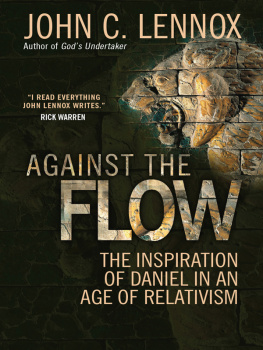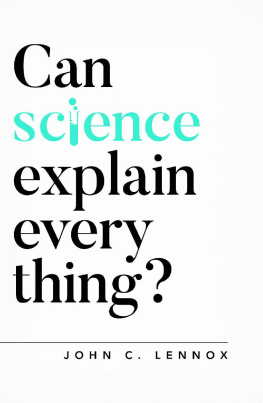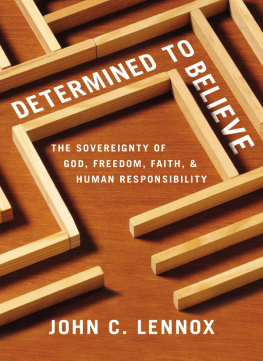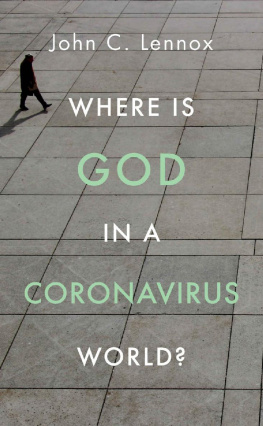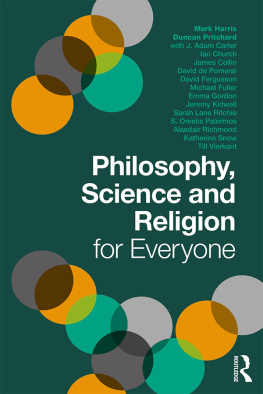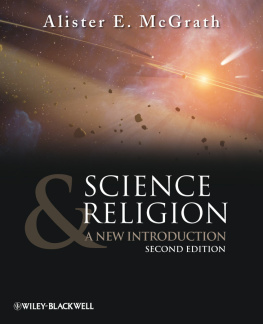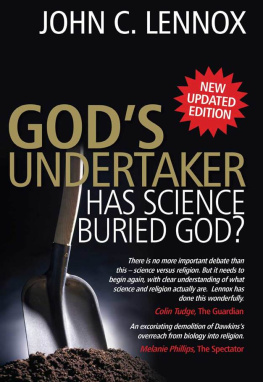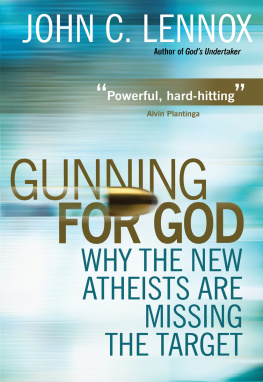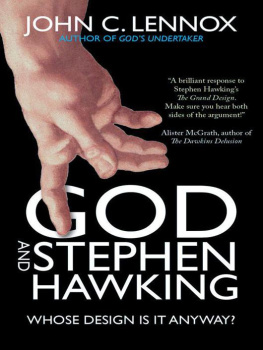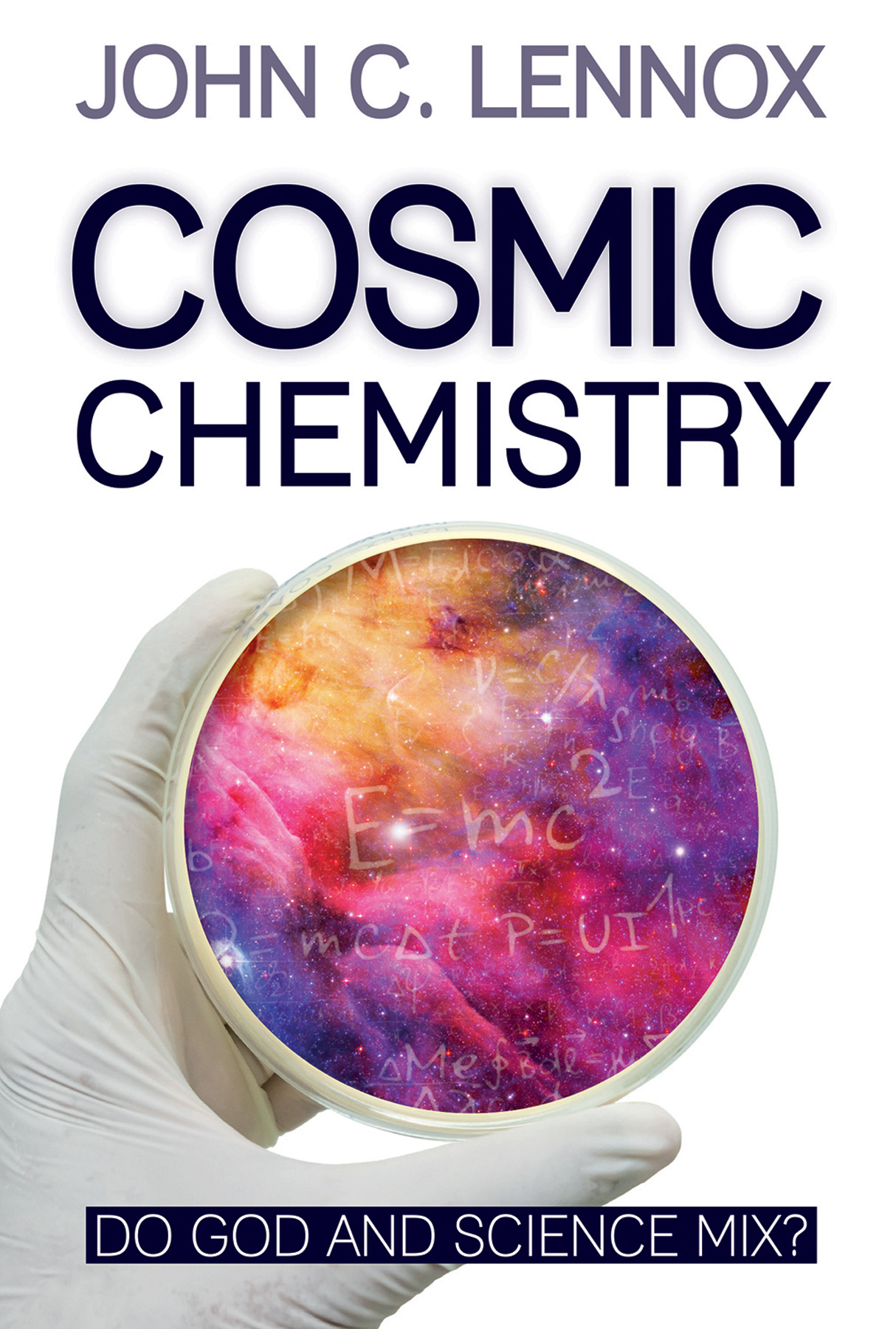Contents
Guide
In this accessible and engaging introduction, [John Lennox] guides us through the great debates about science and faith, and offers incisive assessments of the issues.
Alister McGrath, Professor of Science and Religion, University of Oxford
In a century when all the fields of science and technology converge in biology, the effort to confront the deeper meaning of life from a historical and philosophical perspective is more relevant than ever before. This book is a timely and excellent contribution to the conversation.
Sonia Contera, Professor of Biological Physics, University of Oxford
John Lennox has a unique ability to integrate theology, philosophy, biology, physics and mathematics into one coherent unity, and a gift of explaining complicated matters in a simple and pedagogical way. [Cosmic Chemistry] is highly topical and most likely it will become an apologetic classic.
Ola Hssjer, Professor of Mathematical Statistics, Stockholm University
a lucid rationalization that modern scientific discoveries offer [] ample support that God and science not only mix, but that belief in a creator God is entirely consistent with, and the best explanation for, all that science teaches us about the universe and life.
Tony Futerman, Professor of Biomolecular Sciences, Weizmann Institute of Science
Praise for Gods Undertaker
An excoriating demolition of Dawkinss overreach from biology into religion.
Melanie Phillips, The Spectator
There is no more important debate than this science versus religion. But it needs to begin again, with clear understanding of what science and religion actually are. Lennox has done this wonderfully.
Colin Tudge, The Guardian
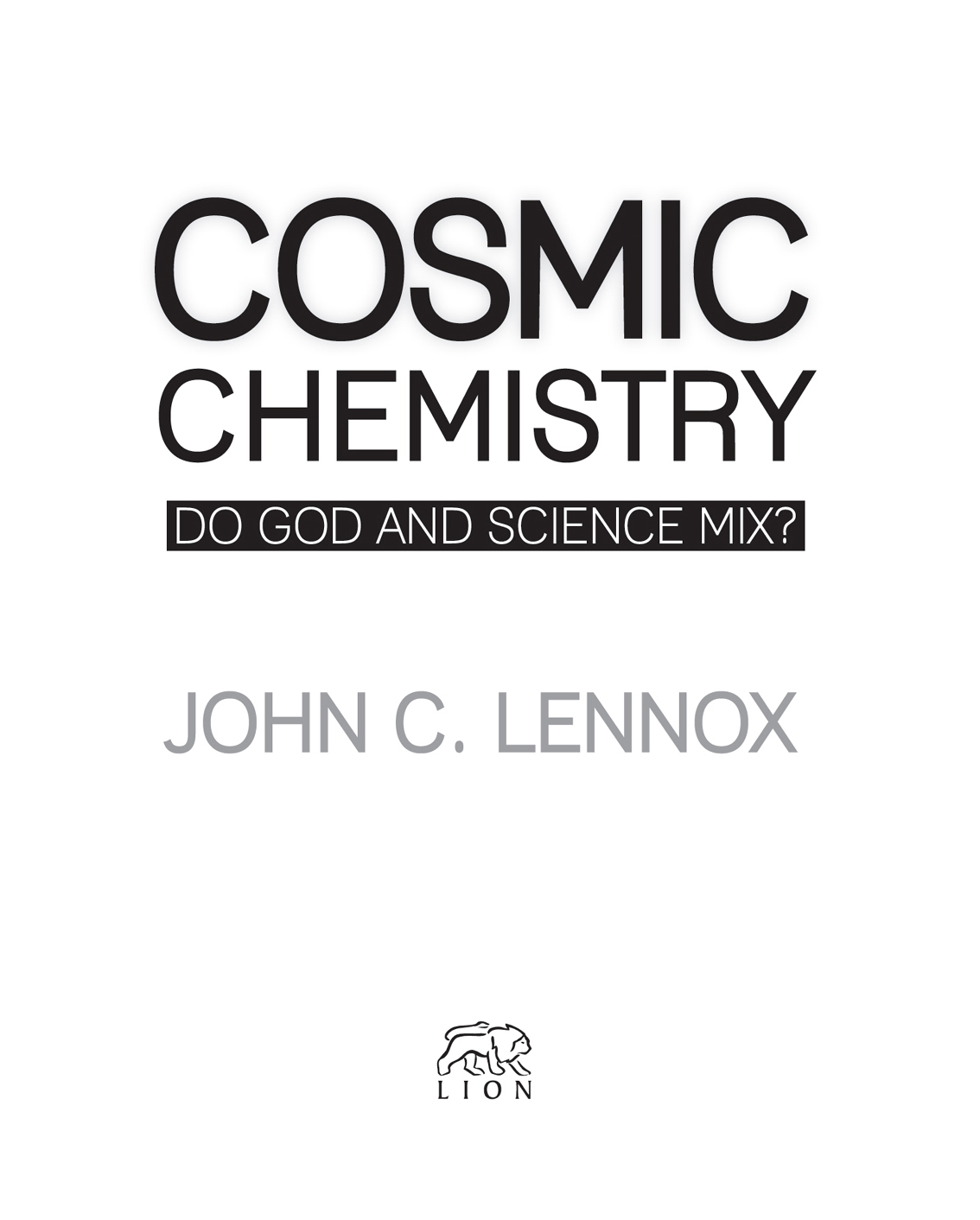
Text copyright 2021 John C. Lennox
This edition copyright 2021 Lion Hudson IP Limited
The right of John Lennox to be identified as the author of this work has been asserted by him in accordance with the Copyright, Designs and Patents Act 1988.
All rights reserved. No part of this publication may be reproduced or transmitted in any form or by any means, electronic or mechanical, including photocopy, recording, or any information storage and retrieval system, without permission in writing from the publisher.
Published by Lion Books
www.lionhudson.com
Part of the SPCK Group
SPCK, 36 Causton Street, London, SW1P 4ST
eISBN 978 0 7459 8141 3
First edition 2007 under the title Gods Undertaker
This edition 2021
Cover image: hand and dish Aphelleon/istock; cosmic background Sukjai Photo/Adobe Stock; equations EtiAmmos/Adobe Stock
Acknowledgments
Unless otherwise marked Scripture quotations are taken from the Holy Bible, New International Version Anglicised. Copyright 1979, 1984, 2011 Biblica, formerly International Bible Society. Used by permission of Hodder & Stoughton Ltd, an Hachette UK company. All rights reserved. NIV is a registered trademark of Biblica. UK trademark number 1448790.
Scripture quotations marked ESV are from The Holy Bible, English Standard Version (ESV) copyright 2001 by Crossway, a publishing ministry of Good News Publishers. All rights reserved.
p. 159 cell diagram courtesy of Genome Research Limited
p. 161 bacterial flagellum from Steps in the Bacterial Flagella Motor by Mora T., Yu H., Sowa Y., Wingreen N.S., in PLoS Computational Biology (2009) https://doi.org/10.1371/journal.pcbi.1000540 under CreativeCommons Attribution 4.0 International (CC By 4.0)
p. 172 double-helix structure Zvitaliy / Shutterstock; p. 349 diagram of a neuron Tefi / Shutterstock
p. 176 RNA codon table courtesy of NHGRI and in the public domain
p. 177 diagram of ribonucleic acid (public domain)
Extracts pp. 37, 127-28, 357 taken from Miracles by C.S. Lewis; extract p. 104 taken from Mere Christianity by C. S. Lewis; extract p. 238 taken from Christian Reflections by C. S. Lewis, all C.S. Lewis Pte. Ltd. 1947. Extracts reprinted by permission.
Extract pp. 266, 269 taken from Letter from J. D. Hooker to Charles Darwin, 26 November 1862 Cambridge University Press, reproduced with permission.
Extract p. 29 taken from Teleological arguments for Gods existence by Del Ratzsch and Jeffrey Kpperski (2009) on https://plato.stanford.edu/entries/teleological-arguments/
Epigraph p. 112 taken from ET and God by Paul Davies on https://www.theatlantic.com/author/paul-davies/. Reproduced by permission.
Epigraph p. 79 taken from One World, John Polkinghorne (London: SPCK, 1986), p. 80. Reproduced by permission.
Epigraph p. 140 taken from Cosmos, Bios and Theos, eds Henry Margenau and Roy Varghese (La Salle, IL: Open Court, 1992), p. 83. Reprinted with permission.
Epigraph p. 207 taken from An open letter to my colleagues by James Tour on https://inference-review.com/ 3 (2), 2017. Reproduced by permission.
Epigraph p. 315 taken from Hans Christian von Baeyer In the beginning was the bit in New Scientist, 17 February 2001. Reproduced by permission.
Extracts pp. 235-236 taken from Questioning evolution is neither science denial, The Guardian, 5 September 2017. Reproduced by permission.
A catalogue record for this book is available from the British Library
CONTENTS
To Sally, without whose love, encouragement,
and support this book and much else
would never have been completed.
My book Gods Undertaker: Has Science Buried God? was first published in 2007 and updated in 2009, and I have been very gratified to see it continuing to attract interest around the world in many languages. Major developments both in science and in the science-religion debate in the intervening years mean that the book was in need, not only of major revision and reorganization, but of rewriting. Hence this book, Cosmic Chemistry.
I am especially indebted to my lifelong friend Professor Nigel Cutland, a mathematical logician from the University of York, for his meticulous attention to the entire manuscript and for the many hours of work he put in to making constructive suggestions and discussing them with me. They have saved me from many a logical pitfall and inaccuracy.
I am also grateful for comments from Professor David Galloway, former President of the Royal College of Physicians and Surgeons in Glasgow, Scotland, Professor Tony Futerman, from the Department of Biomolecular Sciences at the Weizmann Institute of Science in Israel, and Dr David Glass of the School of Computing at Ulster University. I also hope that my response to the criticisms of the previous editions that I have received over the years, together with much new material, will be a stimulus in the ongoing discussion.
John C. Lennox
Oxford, January 2021
This book is intended as an introduction to the ongoing sciencereligion debate. I have spent many years thinking about the issues involved and have tried to find a way, not only of navigating the terrain myself, but also of helping others to do the same. The questions that arise are the big questions that have exercised the human mind for thousands of years. The first one, said to have been asked, among others, by mathematician Gottfried Wilhelm Leibniz, philosopher Ludwig Wittgenstein, and theologian Martin Heidegger, is: Why is there something rather than nothing? Heidegger called it the fundamental question of metaphysics. It then rapidly spawns many other questions: Why, in particular, does the universe exist? Where did the cosmos come from, and where, if anywhere, is it heading? Is it the ultimate reality beyond which there is nothing, or is there something more? Can we expect an answer to physics Nobel laureate Richard Feynmans question: What is the meaning of it all? Another Nobel laureate, Albert Einstein, once said: To know an answer to the question, What is the meaning of human life?


